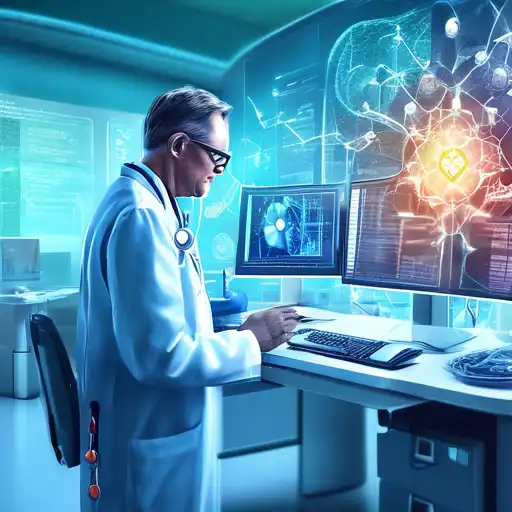The Transformative Impact of Data Science on Modern Healthcare
In the digital age, data science has emerged as a cornerstone of innovation across various sectors, with healthcare being one of the most significantly impacted. The integration of data science into healthcare is revolutionizing how we diagnose, treat, and prevent diseases, offering unprecedented opportunities for improving patient outcomes and operational efficiency.
Enhancing Diagnostic Accuracy
Data science is playing a pivotal role in enhancing the accuracy of diagnoses. Through the analysis of vast datasets, algorithms can identify patterns that may elude human observation. For instance, machine learning models are now capable of detecting early signs of conditions such as cancer and diabetes with remarkable precision, enabling timely intervention.
Personalized Medicine
One of the most exciting applications of data science in healthcare is the development of personalized medicine. By analyzing a patient's genetic makeup, lifestyle, and environmental factors, healthcare providers can tailor treatments to the individual, significantly improving the efficacy of therapies and reducing side effects.
Operational Efficiency
Beyond patient care, data science is streamlining healthcare operations. Predictive analytics are being used to optimize hospital staffing, manage inventory, and reduce wait times, ensuring that resources are allocated more efficiently and patients receive care when they need it most.
Preventive Healthcare
Data science is also transforming preventive healthcare. By analyzing trends and risk factors, public health officials can identify potential outbreaks before they occur and implement measures to mitigate their impact. Similarly, wearable devices equipped with data analytics capabilities are empowering individuals to take charge of their health by monitoring vital signs and encouraging healthy behaviors.
Challenges and Considerations
Despite its potential, the integration of data science into healthcare is not without challenges. Issues such as data privacy, security, and the need for robust regulatory frameworks must be addressed to fully realize the benefits of this technological revolution.
In conclusion, data science is reshaping healthcare in profound ways, from enhancing diagnostic accuracy to enabling personalized medicine and improving operational efficiency. As the field continues to evolve, it promises to unlock even more possibilities for advancing human health and well-being.
For more insights into how technology is transforming healthcare, explore our articles on medical technology and big data in healthcare.
